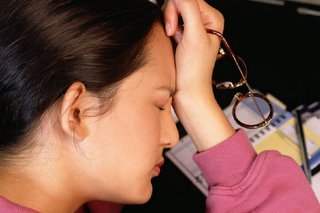Tuesday, January 02, 2007
Who Is Most At Risk of LBO (lawyer burnout) and What To Do About It.
 Usually, it is the best and the brightest lawyers who are most vulnerable to lawyer burnout. Ambitious, capable people, who have high expectations of themselves are particularly susceptible. So, if the following tends to describe you...you may be at risk:
Usually, it is the best and the brightest lawyers who are most vulnerable to lawyer burnout. Ambitious, capable people, who have high expectations of themselves are particularly susceptible. So, if the following tends to describe you...you may be at risk:Feel a pressure to succeed: What lawyer doesn't?
Tend to over-commit: Multi-tasking and taking on an unreasonably heavy work load is a way of life for most attorneys.
Need to be in control all the time: A prerequisite for being a great lawyer
Lack work-life balance: With all the billables, cases and clients...who has time for a life?
Tend to be inflexible: Lawyers are trained to pick a side and stick to it.
Unable to relax: Tough to relax when you have looming deadlines, mounting voice and e-mails and demanding clients.
What you can do
Get help.
Too often lawyers like to do things on their own. Check out your firm's EAP program or seek out the help of therapist or a Professional Coach who specializes in working with lawyers.
Here are some things you can do you your own to help alleviate some of the symptoms associated with burnout:
- Re-evaluate your goals and prioritise them
- Evaluate the demands placed on you and see how they fit in with your goals
- Identify your ability to comfortably meet these demands.
- If you are over-involved, reduce the commitments that are excessive
- If people demand too much emotional energy, become more unapproachable and less sympathetic.
- Involve other people in a supportive role. You owe it to yourself to avoid being bled dry emotionally.
- Learn stress management skills
- Examine other areas in your life that are generating stress, such as work or family, and try to solve problems and reduce the stress
- Get the support of your friends and family in reducing stress
- Ensure that you are following a healthy lifestyle:
- Get adequate sleep and rest to maintain your energy levels
- Ensure that you are eating a healthy, balanced diet - a poor diet can make you ill or feel bad.
- Get adequate regular aerobic exercise
- Limit your caffeine and alcohol intake
- Acknowledge your own humanity: remember that you have a right to enjoy a healthy quality of life.
If you think you may be suffering from burnout and you'd like to get some help...send an e-mail to Info@EsqDevelopmentInstitute.com to set up a complimentary coaching session.
Sunday, December 31, 2006
Tips for Lawyers: Creating Effective Habits in the New Year

Its that time of year where we all feel enormous pressure to make resolutions for personal and professional improvement.
Lawyers are no exception!
The problem is too often we set new goals without a real plan of how were going to avoid reverting to our old habits.
Habits can be a friend or foe. Think of a habit as a pattern of behavior. Successful habits...help us to achieve success...other less success building habits can serve to undermine our efforts to achieve.
Here is a great exercise for getting rid of old habits and replacing them with habits designed to help you to effectively achieve your objectives.
STEP ONE:
List 3 or more habits that are currently holding you back from achieving your goals and describe how these habits negatively impact your life.
EXAMPLE:
Habit: Overspending: No savings/investments for the future
Impact: Unable to achieve financial and retirement goals' stressed about money
STEP TWO
List successful habits you will choose to adopt in place of the "bad" habits and the benefits of adopting the new habit
EXAMPLE:
Successful New Habit: Begin investing with the help of a financial planner.
Benefits: Debt free, financial freedom, comfy retirement.
STEP THREE
Create a 3 step action plan to jumpstart each new habit. Be specific, pick a start date, a completion date and get started!
EXAMPLE:
Action Plan
1 Find an excellent financial planner
2 Set up a monthly savings and investment plan
3 Create a realistic spending plan and look for ways to trim unnecessary spending
Start Date: January 7
Completion date: January 17th
Implementing new habits, new patterns of behavior, will take time. Stay committed to the process and you’ll soon achieve your desired results.